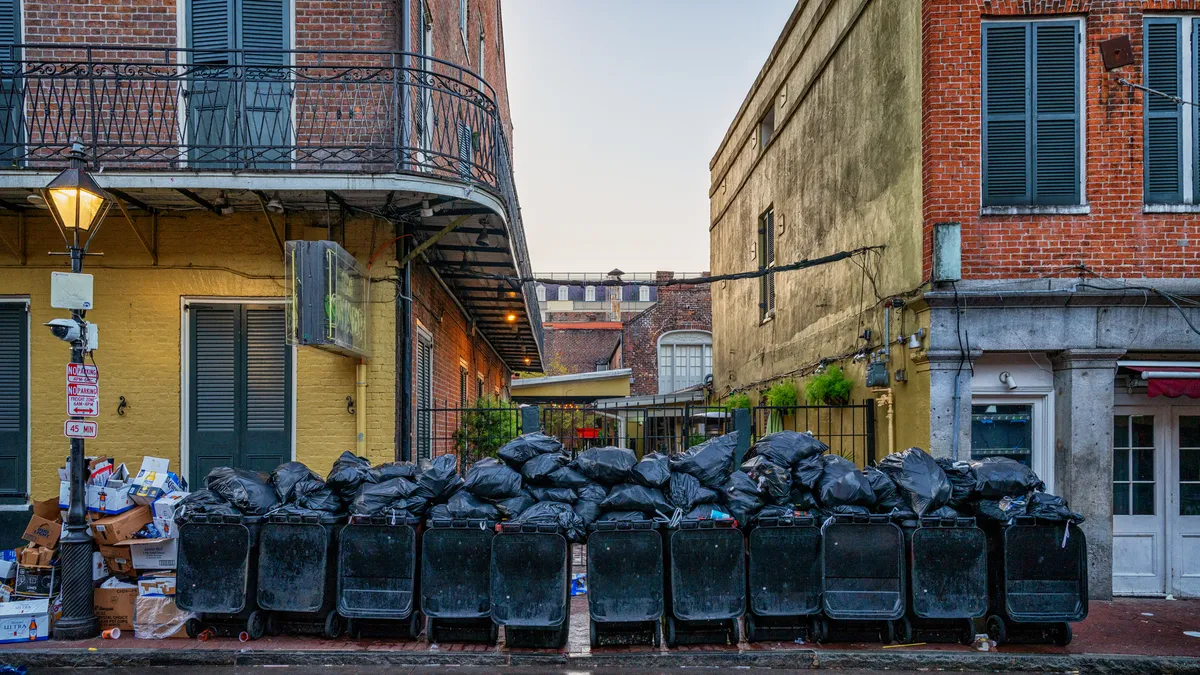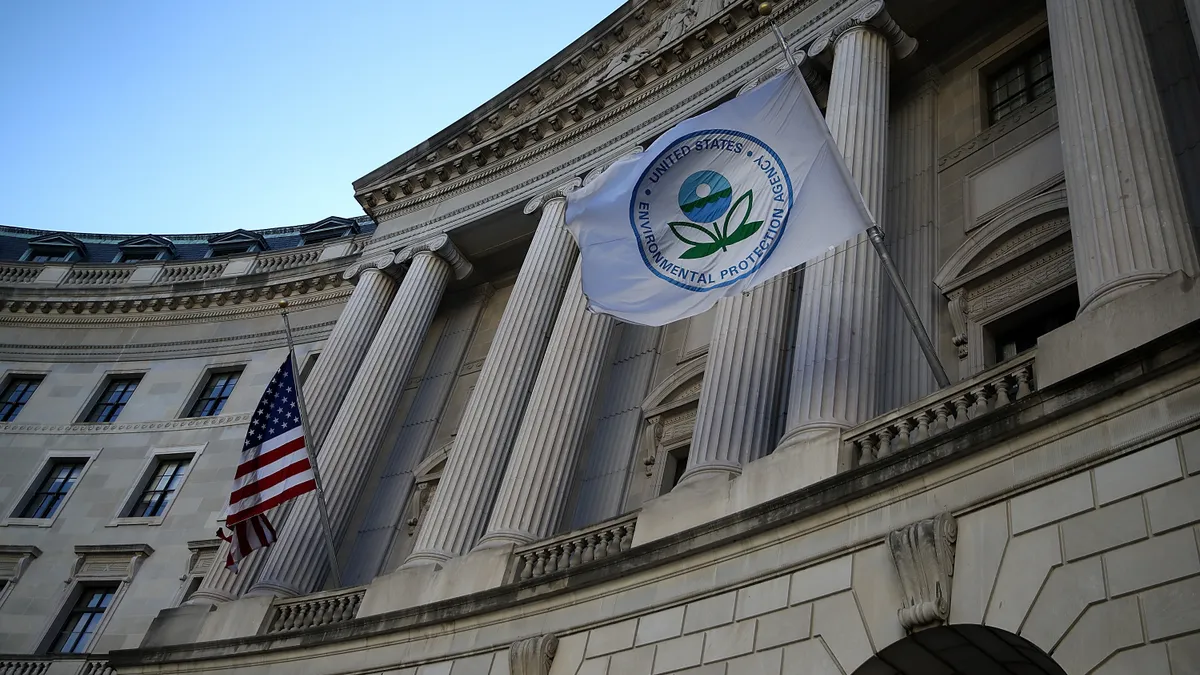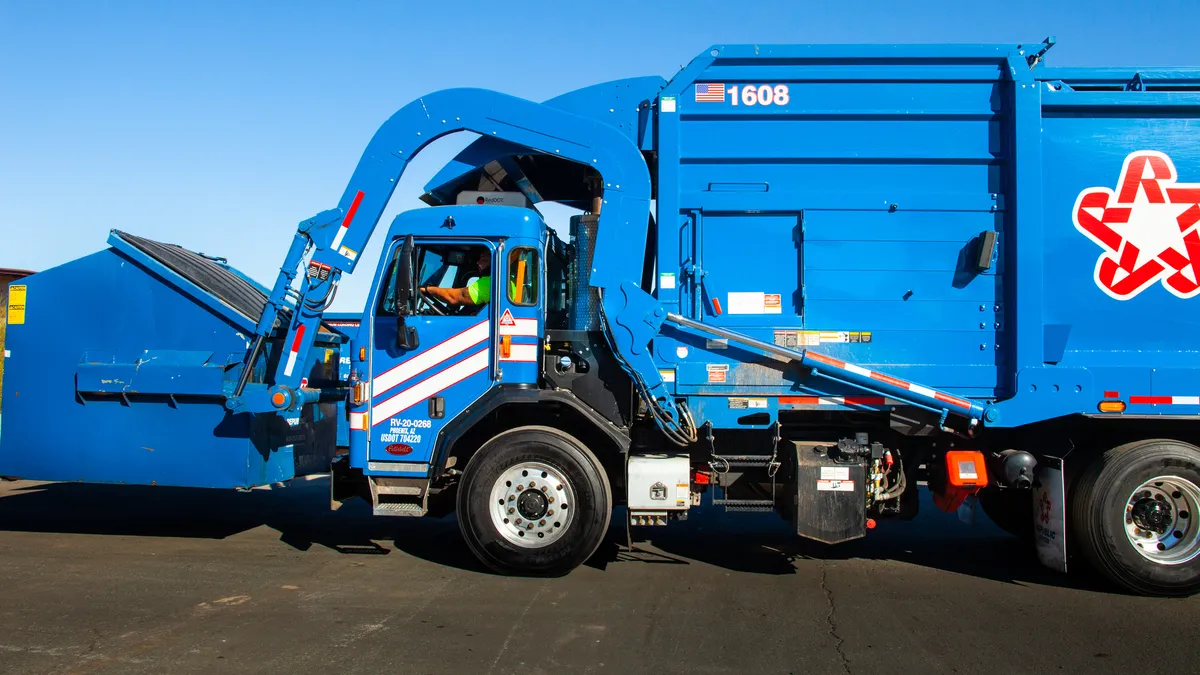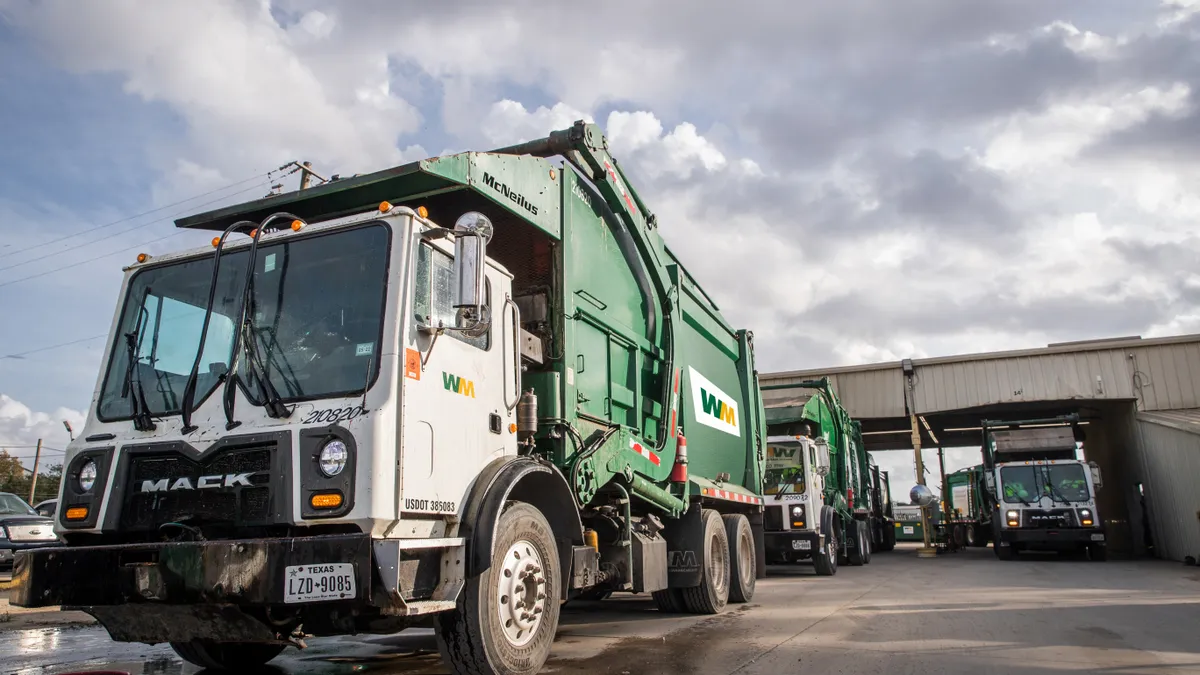Since early May, sanitation workers employed by a New Orleans city subcontractor have been on strike in an effort to win pandemic hazard pay and other changes. Their action comes at a time when frontline employees in sectors across the country say they are being exposed to heightened risks that justify increased wages.
Frontline waste industry employees can earn high wages in some instances, but rates differ for a variety of reasons depending on the employer or location. That has sparked growing interest in supplemental pay in light of newly challenging conditions. Absent regulatory drivers, which have largely not come to fruition, the decision to pay more rests with employers and it has so far not been the norm. Now, as the pandemic's risks appear to be rising across the country and conversations about systemic racism have come to the forefront, some believe the debate about hazard pay is likely to mount.
The striking New Orleans "hoppers," who jump off and on to trucks collecting waste, began their action on May 5. They are employees of PeopleReady, a subcontractor of Metro Services Group (previously called Metro Disposal), which services part of New Orleans under contract. Daytriàn Mariell Wilken, a spokesperson for the striking workers, told Waste Dive the hoppers want more personal protective equipment (PPE), upgrades to the trucks they use, a minimum wage of $15 an hour, and $150 per week in hazard pay.
When the strike began, Metro briefly employed incarcerated workers from the Livingston Parish’s Transitional Work Program, who spent several days on the job. LaTonya Norton, press secretary for New Orleans Mayor LaToya Cantrell, said "a number of workers" returned to their jobs after that. She said the city confirmed with Metro that workers are receiving proper PPE and has requested records to ensure subcontractees are receiving proper pay.
A spokesperson for PeopleReady said via email that employees working with Metro have been provided with full PPE, including gloves, masks, and eye protection. The company also said no striking employees have been fired and there are no intentions to fire them in the future. "The fact that a business continues to operate with replacement workers does not mean that striking employees have been fired," said the spokesperson. "When faced with a strike, it is a company's lawful right to continue to operate the business."
Virginia Miller, spokesperson for Metro, said her company has been communicating with the subcontractees through New Orleans City Council President Jason Williams, which Wilken confirmed. Williams' office did not respond to a request for comment, but Miller said the striking workers have not asked for Metro itself to institute hazard pay. The company has said it supports federal action on hazard pay for workers more broadly.
"Thus far, while Metro is still hopeful that a dialogue can occur, there has been no response," said Miller.
Wilken said 14 hoppers remained on strike as of late June, down from more than two dozen at the outset. Recently, Metro subcontractees held more demonstrations and asserted their commitment to continuing their strike.
— The City Waste Union (@waste_union) June 6, 2020
While the waste industry's demographics vary by region, people of color are a core part of the frontline workforce. They are the people feeling some of the heaviest health effects from COVID-19, and their wellbeing has increasingly become part of pandemic compensation conversations playing out across all levels of government. Wilken connected the New Orleans strike to wider national protests over racism and the treatment of Black communities, given that the local sanitation workforce is predominately Black men. Those on strike have referenced the 1968 Memphis sanitation workers' strike as a source of inspiration.
"I think the story pretty much tells itself," Wilken said, adding that the strike "juxtaposes the issue of race in this country and the issue of poverty."
National supplemental pay decisions show little cohesion
The concept of hazard pay is not a new one, but it has become a much bigger part of national labor conversations since the pandemic began.
Hourly wage increases have been among the most common recent steps taken by companies in multiple sectors, said Adrienne Altman, managing director and North American lead for talent and rewards at advisory firm Willis Towers Watson. A recent survey done by the firm found many companies intended these pay bumps to be temporary, but Altman noted there have been high-profile instances of workers in other industries pushing back and she expects the issue to remain relevant.
"For those that put their premium on an hourly basis, most of them said that was never meant to be permanent," she said. "I do think that employers will be looking at this closely. So while they might take away this premium, I think they’re going to continue to have to monitor how much they pay, and whether it is a living wage and whether they might need to continue to look at increasing their minimum pay rates in the future."
Among the waste industry's largest companies, Waste Connections was unique in announcing wage increases (an additional $2 per hour), but that move was similarly temporary.
"We were the only public company to do this, others tried to guarantee hours [or] provide meals, but ... given the circumstances we wanted to support our frontline team for the essential work they were providing during this difficult time," said Jason Craft, Eastern region vice president, via email. "We did end the supplemental pay at the end of May, but at the same time we accelerated all remaining wage increases for the balance of the year to take effect as the supplemental pay sunsets, again given the environment we are putting our efforts purposely on actions to support our front line team."
Public sector waste and recycling workers have seen similar benefits in certain cities, with varying timeframes.
Philadelphia initially provided city workers with two weeks of time-and-a-half pay, expiring on March 29. On June 9, city sanitation workers held a rally calling for hazard pay, along with more PPE and coronavirus testing. Like their counterparts in New Orleans, the Philadelphia Inquirer reported the mostly-Black municipal sanitation workers and their supporters drew connections between the strike and the Black Lives Matter movement. Those workers explicitly stated the rally was not a strike.
Kelly Cofrancisco, deputy communications director for the city, said workers have held no additional rallies since, and they can receive COVID-19 testing covered by their health insurance. She said contracts have been extended by one year, with a 2% raise and a $750 bonus.
"The Department will continue to provide the necessary PPE, but as with all entities across the country, the City has experienced some challenges with supply and delivery of this equipment due to high demand," she wrote via email.
A spokesperson for Atlanta's Department of Public Works directed Waste Dive to a June 1 executive order by Mayor Keisha Lance Bottoms that extends hazard pay for all frontline city employees through Sept. 30. Neighboring Smyrna has also taken similar steps to extend hazard pay for essential city workers in recent months.
So far, these moves all appear to be voluntary and, despite a growing number of legislative proposals at multiple levels of government, there has been limited regulation to drive hazard pay requirements elsewhere that would apply to the industry.
The U.S. House of Representatives passed the HEROES Act in May, which could have some of the widest implications, but the Senate has yet to take it up despite ongoing advocacy by House Speaker Nancy Pelosi and other legislators. Under the current version, essential workers (including sanitation workers) would be eligible to receive $13 per hour in addition to their regular wages, for up to $25,000 during the year when applied retroactively.
Similar bills have been introduced at the state level, including in Massachusetts, with limited movement. In one exception, the Louisiana State Legislature recently passed a bill to provide a one-time payment of $250 to essential workers earning under $50,000 per year. This includes multiple categories of sanitation and waste collection personnel. Gov. John Bel Edwards has yet to act on the legislation, though plans to sign it according to the Daily Iberian.
Many local proposals have taken a different approach, with tiered payments based on the length of workers' shifts, but most that could affect the waste industry have yet to gain traction.
A bill in the New York City Council drew notable support when it was introduced in April, including from Sen. Elizabeth Warren, but appears to have stalled, according to reports from Crain's New York and others. Under the proposal, businesses with more than 100 employees would be required to pay hourly workers an additional $30 per shift under four hours, $60 per shift between four and eight hours, and $75 dollars for shifts over eight hours.
The National Waste and Recycling Association's (NWRA) local chapter was among numerous business groups to oppose the measure, saying member companies already paid high wages and calling the broader legislative package "a recipe for financial disaster." The chapter noted this proposal came during a period of heightened operating expenses and lost revenue in the city. Local chapter members Waste Connections and Interstate Waste Services were among those that testified against it
A similar bill in Baltimore, sponsored by Council President (and Democratic mayoral nominee) Brandon Scott, has also not progressed since it was introduced in late May. Another bill in Albuquerque, New Mexico, was voted down by council members in late June.
Aside from the New York legislation, many of these proposals have not elicited direct feedback from the waste industry and the NWRA's national leadership declined to comment on its position around hazard pay generally. Solid Waste Association of North America CEO David Biderman said industry discussion around the topic had dropped off since March and April, and he predicted it was unlikely to emerge as a major focus at a time when some service providers might feel they have more staffing options.
“With unemployment at double digits and likely to remain so for the foreseeable future, it becomes challenging to significantly increase frontline workers' pay even though they’re doing heroic work during a pandemic," he said.
Race and risk conversations continue
With more people returning to public settings in a post-lockdown world, the concept of hazard pay has grown more complicated in recent months.
"It was put in place for those that were absolutely essential and therefore the construct was that when this goes away we will remove it," said Altman of Willis Towers Watson. "Now there’s a hazard for everybody. So that's the point, it's a really tough one."
Data collected by the Environmental Research & Education Foundation (EREF) during May, and recently published in Waste360, indicated that industry workers may have initially experienced a lower rate of infection and hospitalization than the general public. EREF confirmed 372 cases and six deaths based on the responses, extrapolating from that to project 1,072 confirmed cases and 17 deaths in the industry as of late May. EREF CEO Bryan Staley noted this did not include public sector operations — such as New York's Department of Sanitation, which has reported 633 confirmed cases — and called it a "very low estimate."
Staley said rates typically followed regional trends among the general population and anecdotal reports indicate there have been cases among both frontline and office workers. This could be interpreted to show exposure may have as much or more to do with where a worker lives than the task they are performing, assuming distancing and hygiene procedures are being followed on the job.
"Once they go home, they're making their own personal choices that lead to exposure that can’t be controlled at the industry level through corporate policies and practices," said Staley. "Even with best practices in place, to see the numbers kind of match what the general population is doing to me is not surprising."
Recognizing the situation is highly fluid, EREF is still collecting data, and hopes to release new results in July. Its findings reinforce, however, that broader risks associated with personal decisions can make it harder to differentiate the hazard level for a particular occupation.
"There is no area in the country with zero risks and many areas where there’s escalating risks," said Lawrence Mishel, a distinguished fellow at the Economic Policy Institute (EPI).
According to a recent study commissioned by EPI, just 30% of people working outside of their homes were receiving some form of hazard pay, while 50% were concerned about bringing the virus back from those jobs. An estimated 40.6% of Black workers reported receiving hazard pay, followed by 33.5% of Hispanic workers and 26.8% of White workers.
Mishel said anecdotal findings indicate Black and Hispanic workers are more commonly part of frontline workforces in certain regions, which he said backed up their concerns about exposure. In his view, renewed focus on racial disparities along with the heightened attention around "essential" services has brought this issue to the forefront.
"Hazard pay has not gotten a lot of attention over the years and economists normally assume that workers who face risks get higher pay that compensates for that risk. I don't think that’s ever been true and I think it's certainly not true now," said Mishel. "This is more front and center, certainly in the public's mind, than ever, and I think certainly in the minds of the workers."
While that national conversation has not led to notable hazard pay policy changes, some believe it will influence discussions long term.
"There's a trend or story around the importance of essential workers, however many of these essential workers are being denied hazard pay or even protections they need to work safely," said Adan Alvarez, communications director for Teamsters Local 396 in California. The union recently tweeted support for hazard pay and Alvarez predicted it could be an issue raised by workers in future contract negotiations, foreshadowed in part by New Orleans. He believes this recent attention has highlighted "the cracks in the U.S. system" around safety and inequity, and will not be going away.
At the national level, Teamsters Solid Waste and Recycling Division Director Chuck Stiles similarly hopes the fresh support for Black Lives Matter could translate into increased support for the labor movement. He confirmed the Teamsters were among the original backers of the HEROES Act and wanted wage and benefit policies to better reflect the challenges of waste and recycling, especially in light of coronavirus risks.
"With this being the fifth most dangerous job in America before [the pandemic], there should be something that rewards these workers," said Stiles. "We're nowhere near the end of this."

















